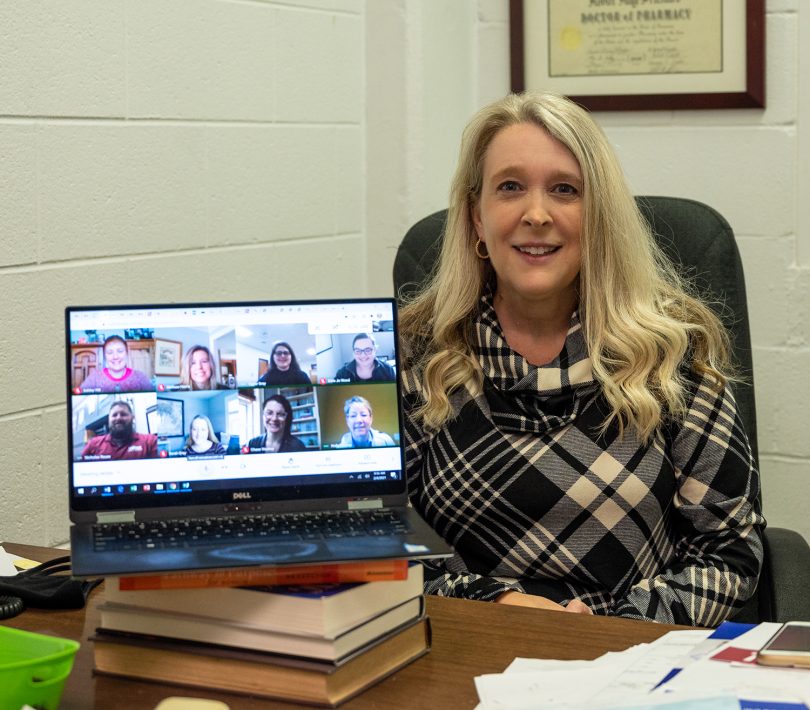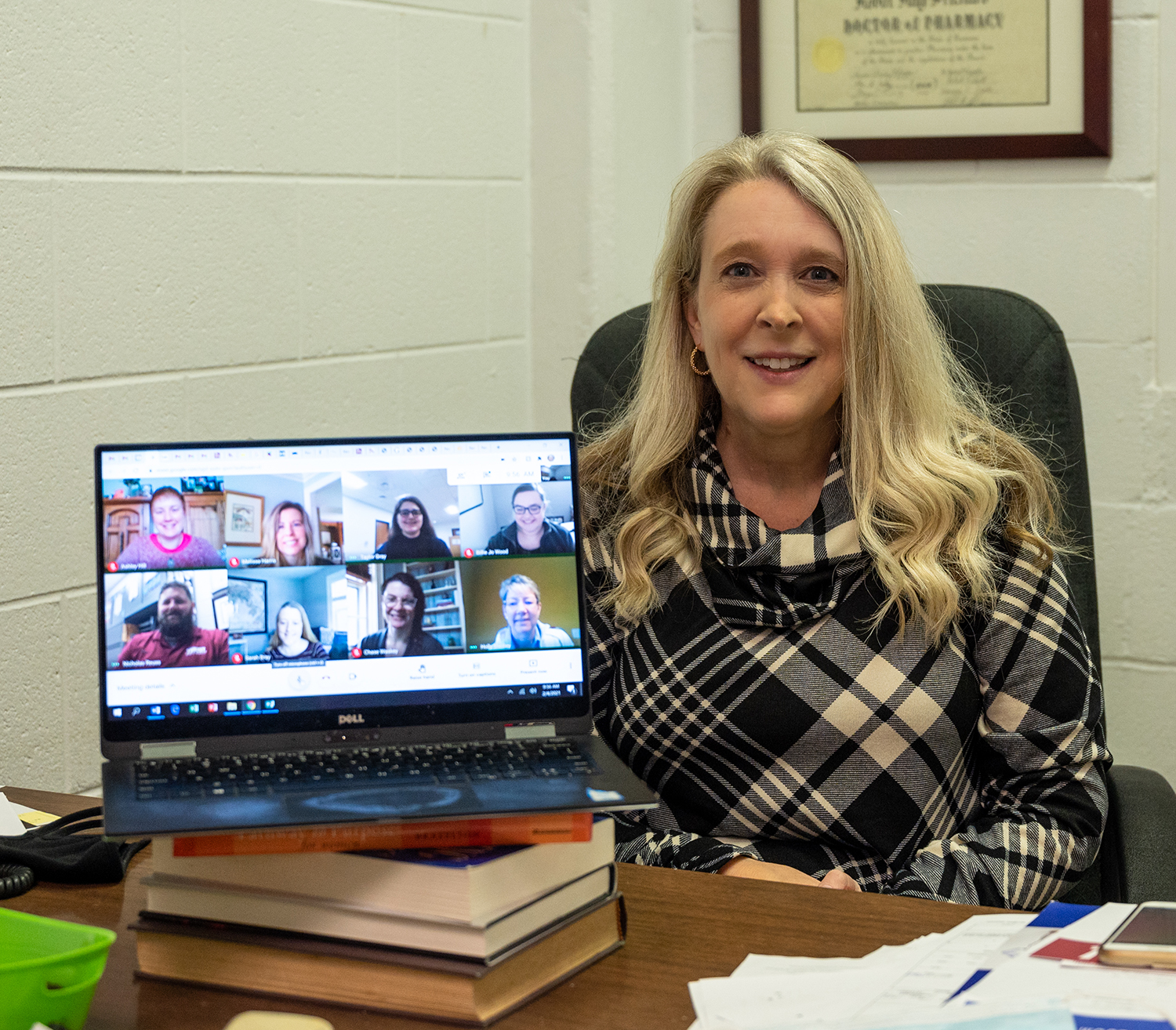
Take a walk around the campus of Transylvania University and you’ll see plenty of ways the school is working to stay healthy during this pandemic — students wearing face masks, distancing stickers on the floors, plexiglass shields.
Not so visible but every bit as important in protecting the Transylvania community is the COVID Quick Response Team, which ensures there’s a coordinated effort across departments to meet the complex challenges of these times.
“Our community is what makes us so special,” said Robin Prichard ’89, special assistant to the president for public health. “We want to make sure every student is taken care of. Every student is special to us.”
Made up of representatives from across campus — from housing and residence life to the Campus Health Clinic to academic affairs to athletics — the response team has been meeting regularly since it was formed at the beginning of the school year by Michael Covert ’91, interim vice president for student life.
Prichard pointed out how cross-campus communication can help students who may be thrown into a novel and complicated situation. For instance, after calling a student to tell them they have COVID, their reaction was: “I can’t be positive, I have a chemistry exam tomorrow.”
This is when team member Sarah Bray, a professor and associate dean for academic affairs, could swing into action and contact faculty about the need for that student to take classes remotely. And member Ashley Hill, assistant dean of students and director of student well-being, could bring in a counselor if necessary.
The team also gets info about which students are in isolation or quarantine and learns when they have a release from the Health Department.
The fact that team members have bonded over these difficult months adds to how effective they are. Prichard said they’re a fun group, and they’ve gotten to know each other well. “We feel very comfortable sharing things as a team.”
Taylor Gray ‘20, a contract tracer and health clinic assistant, said that “by working together we can inform each other of any issues students may be having.” For instance, she might work closely with another team member who knows a student in isolation really well — to help them open up about what they’re experiencing. “That’s helped me connect with the students better and figure out how I can better serve them,” she said.
Gray also said it’s great to have the clinic’s new full-time advanced practice registered nurse, Melissa Harris, on the team as well.
Harris gave her own first impression of the team. “It benefits everyone involved and keeps our community healthier,” she said. “By bringing different areas of expertise together, it allows for different perspectives, more ideas, better problem solving, better use of resources, and a sense of satisfaction to all involved — which is exactly what this team is doing.”

